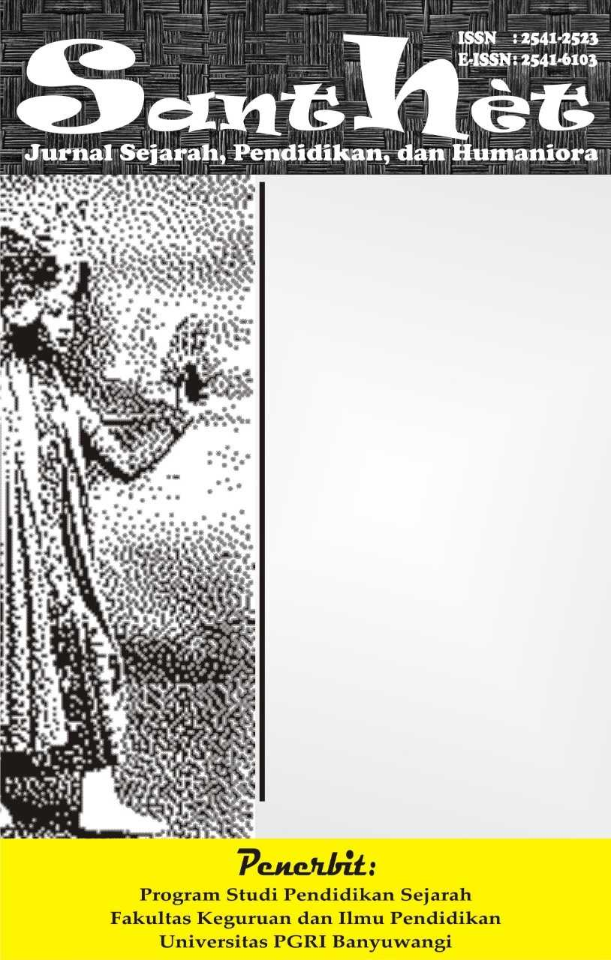THE INFLUENCE OF INTELLECTUAL INTELLIGENCE, EMOTIONAL INTELLIGENCE, SPIRITUAL INTELLIGENCE ON THE PERFORMANCE OF EMPLOYEES OF THE FIRE AND RESCUE SERVICE OF SURABAYA CITY
PENGARUH KECERDASAN INTELEKTUAL, KECERDASAN EMOSIONAL, KECERDASAN SPIRITUAL TERHADAP KINERJA KARYAWAN DINAS PEMADAM KEBAKARAN DAN PENYELAMATAN KOTA SURABAYA
DOI:
https://doi.org/10.36526/santhet.v8i2.4296Keywords:
Intellectual Intelligence, Emotional Intelligence, Spiritual Intelligence, Employee PerformanceAbstract
This study aims to analyze the influence of intellectual intelligence, emotional intelligence, and spiritual intelligence on the performance of fire department employees in the firefighting division of Surabaya. Employee performance is a crucial aspect of a fire department organization, as the success of the team in handling emergency situations depends on the effectiveness, resilience, and quick response of each individual. This research employs a quantitative method by collecting data through questionnaires distributed to 100 employees of the Surabaya Fire Department. Based on the analysis results, it was found that intellectual intelligence (X1) and emotional intelligence (X2) did not have a significant influence on employee performance, with t-values of 1.422 and 0.646, respectively, which were smaller than the t-table value of 1.69, and p-values of 0.159 and 0.520, respectively, which were larger than 0.05. On the other hand, spiritual intelligence (X3) was proven to have a significant effect on employee performance, with a t-value of 8.163 larger than the t-table value of 1.69 and a p-value of 0.000 smaller than 0.05. The findings of this study highlight the importance of spiritual intelligence in improving employee performance, particularly in situations that require resilience, motivation, teamwork, and ethical decision-making. This research suggests the importance of developing spiritual intelligence as part of performance enhancement strategies in the workplace of fire departments.
References
Cooper, C & Sawaf, A. 1999. Executive EQ: Kecerdasan Emosional dalam. Kepemimpinan dan Organisasi. Jakarta: Gramedia Pustaka
Dessler, G. 2015. Manajemen Sumber Daya Manusia. Jakarta: Salemba Empat
Goleman, D. (1995). Emotional Intelligence: Why It Can Matter More Than IQ. Bantam Books.
Goleman, Daniel. 2005. Emotional Intelligence, terj. T. Hermaya, Jakarta : PT Gramedia Pustaka Utama.
Mangkunegara, A. P. (2000). Manajemen Sumber Daya Manusia Perusahaan. PT Remaja Rosdakarya.
Robbins, S. P., & Judge, T. A. (2013). Organizational Behavior (15th ed.). Pearson Education.
Robbins, Stephen P. 2001. Perilaku Organisasi: Konsep, Kontroversi, Aplikasi, Jilid. 1, Edisi 8, Prenhallindo, Jakarta.
Sternberg, R. J. (2019). Successful Intelligence: How Practical and Creative Intelligence Determine Success in Life. Simon & Schuster.
Sternberg, R. J., Wagner, R. K., Williams, W. M., & Horvath, J. A. (2000). Practical intelligence: Origins of competence in the everyday world. Cambridge University Press.
Sudarma, K. 2012. Mencapai sumber daya manusia unggul (Analisis kinerja dan kualitas pelayanan). JDM (Jurnal. Dinamika Manajemen), 3(1).
Sugiyono. 2018. Metode Penelitian Kuantitatif, Kualitatig, dan R&D, penerbit. Alfabeta,Bandung.
Sukidi. 2002. Kecerdasan Spiritual. Mengapa SQ Lebih Penting Daripada IQ & EQ,Jakarta.
Uno B, Hamzah dan Masri Kuadrat. 2010. Mengelola Kecerdasan dalam. Pembelajaran, Jakarta: Bumi Aksara. cet. Kedua.
Wukir. 2013. Manajemen Sumber Daya Manusia Dalam Organisasi Sekolah. Multi Presindo. Yogyakarta.
Zohar, D, & Marshall, I. 2001. SQ: Take advantage of spiritual intelligence in thinking | integrative and holistic as the meaning of life. Mizan.





























